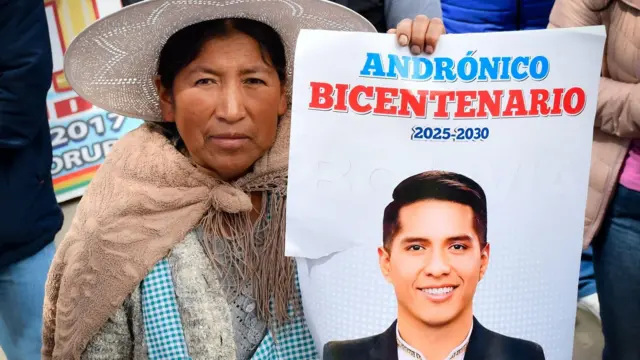As Bolivia prepares for upcoming elections, a new figure is emerging on the political stage: Andrónico Rodríguez. At just 36 years old, Rodríguez has become a leading presidential candidate, representing the fractured left-wing Movement for Socialism (MAS), once dominated by former president Evo Morales.
Rodríguez, who began his political career as a leader within the powerful coca growers’ unions in Cochabamba — the same movement that propelled Morales to power — has quickly risen through the ranks of Bolivian politics. His leadership style, youth, and ability to connect with younger generations have positioned him as a fresh face capable of revitalizing a deeply divided political movement.
The MAS party, still reeling from internal conflicts following Morales' controversial departure and return to Bolivian politics, remains Bolivia’s most powerful left-wing force. However, divisions between factions loyal to Morales and those seeking generational change have weakened the party’s cohesion. Rodríguez represents a potential bridge between these factions, combining loyalty to the party’s core ideals with a call for renewal.
“We need to maintain our principles but also recognize that Bolivia’s youth want new leadership and new ideas,” Rodríguez has stated in recent interviews.
His message resonates particularly among younger voters who are disillusioned with long-standing political figures but remain committed to the party’s social and economic vision.
Despite his growing popularity, Rodríguez faces significant challenges. The fractured nature of the left, ongoing economic struggles, and political opposition from conservative sectors create a difficult path forward. Additionally, his ability to maintain unity within MAS while asserting independence from Morales' powerful influence will be key to his political survival.
Observers note that Rodríguez’s candidacy may mark a turning point for Bolivia’s left, potentially opening a new chapter in the country’s complex political landscape. As elections approach, all eyes will be on whether this young leader can transform popular support into electoral success, and whether he can heal the deep divisions within his own movement.
